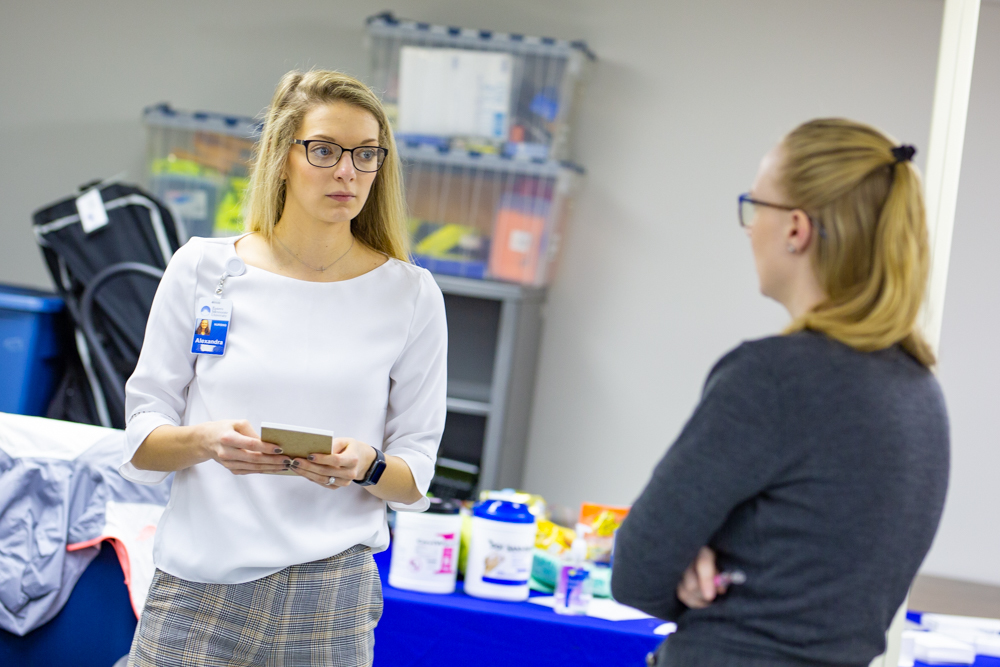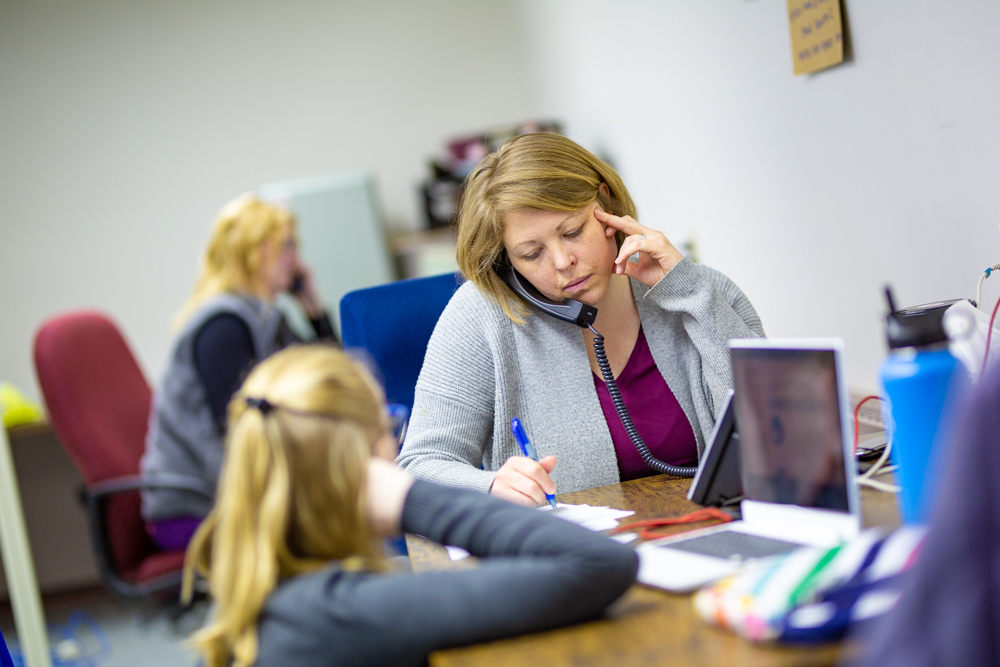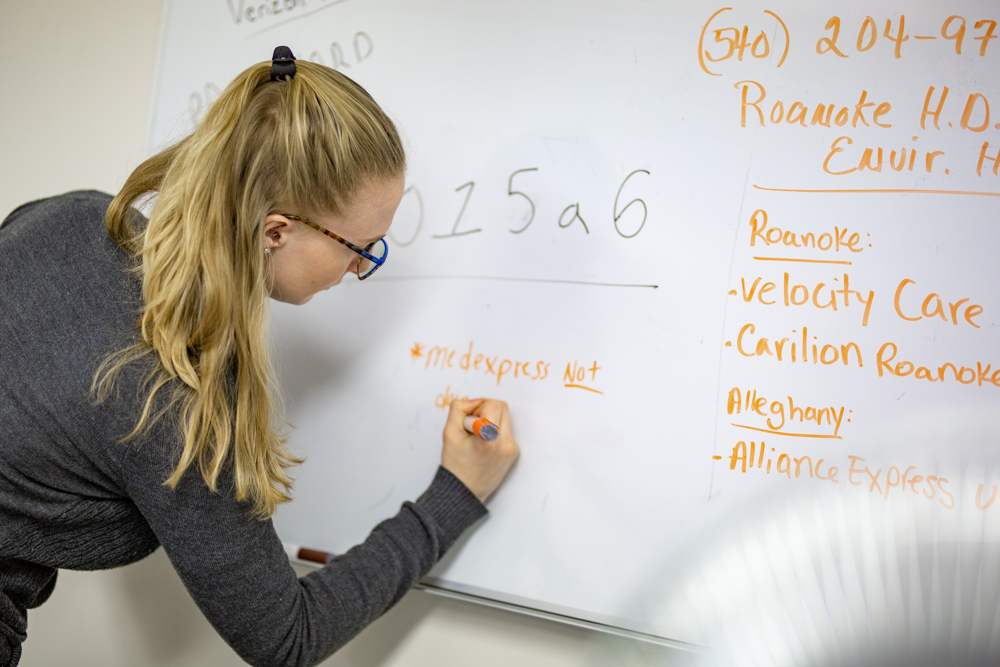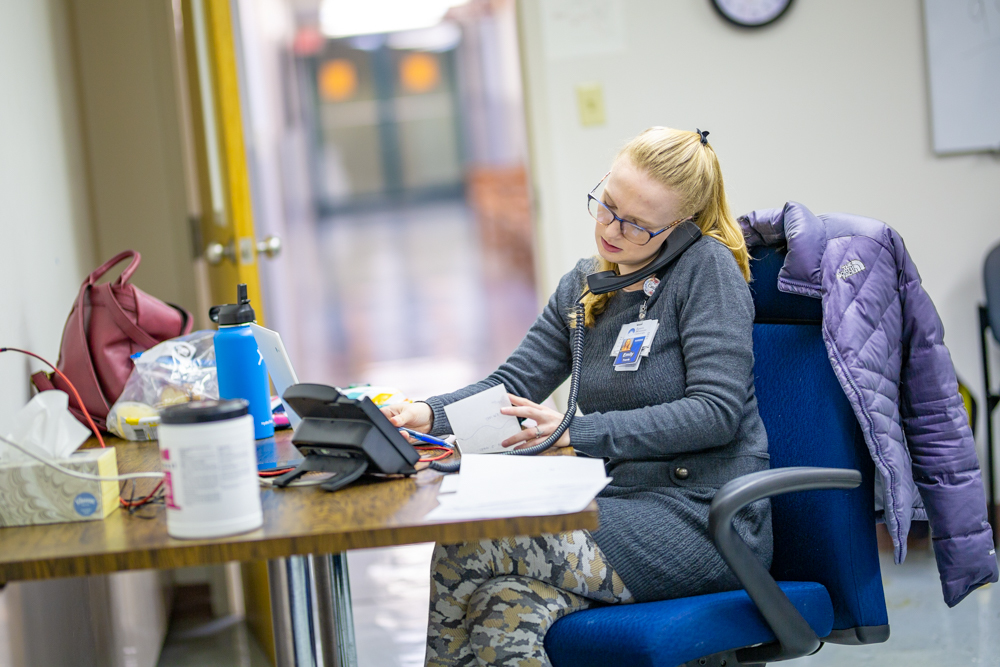If you called Virginia Department of Health’s COVID-19 hotline last week from anywhere in the Shenandoah Valley, your questions may have been answered by a senior nursing student from Eastern Mennonite University.
VDH’s regional COVID-19 call center, located in the basement of the Mason Street office in Harrisonburg, is manned by four nurses between the hours of 8 a.m.-4 p.m. For the last week, students have joined the staff during each four-hour shift.

“I’ve learned so much,” said senior Ally Coffey, who will graduate in May with 16 classmates. “Each call I take, I learn something new because I have to find and process the information, and then I know it for the next time.”
Fielding questions from citizens living in the four-county Central Shenandoah Health District and as far south as Roanoke, the students provided information, calmed fears, and pointed out resources. Each hour they logged freed public health nurses for other work. Additionally, the time counted as clinical hours and put them in direct communication with residents in need.
“It’s been an amazing public health nursing opportunity,” said Kate Clark, assistant professor of nursing.
The service (access it by calling 877-ASK-VDH3) is a way to “get out accurate, fact-based information to the public, to help people remain calm and give them guidance when they don’t know what to do or can’t find specific information,” Clark said.

Questions “run the gamut,” she added. “So we do have people calling who say, ‘I’m exhibiting these symptoms. What should I do?’ We have people who say, ‘My friend’s or coworker’s wife might be positive. What should I do?’ We’d have employers asking about what they should do for their employees and letting them work from home. We have people asking about their pets and if it’s safe for their pets to be around them.”
For Coffey and classmate Emily Travis, each phone call is a way to practice their communication skills, conveying both empathy and competence to allay fears.
“Helping the public filter out fact and fiction is really important,” said Travis, “ because they’re hearing a lot on the news and hearing a lot of fear and you sort of have to sit down and on the phone and say this is what’s going on and this is how we can stay safe. I know there’s a lot of fear out there and there’s a lot going on, but if we take these measures then we can be okay.”
Despite ending their clinical rotations earlier than normal, all of EMU’s nursing majors in their final semester will be ready to take their boards and enter the workforce. Some will have a little extra public health nursing experience.
“This isn’t like a normal thing we would be doing,” Clark said. “It’s a way that students can actually do something that is helpful, not just to the nurses here but to the general public. And so we’re really happy to be taking advantage of that opportunity and glad that they trust us to join them in the work.”


Thank you so much EMU nursing students! As our public health nurses are spread thin, your service is much appreciated!
“Onward, Christian Soldiers…” to war against Corona Virus.
Congratulations……. Prof Kate Clark , students, entire team of nursing fraternity for engaging students in most helpful and productive way of helping those who are really in need during COVID pandemic. Students might had a remarkable experience in public health unlike their routine clinical and theory classes.